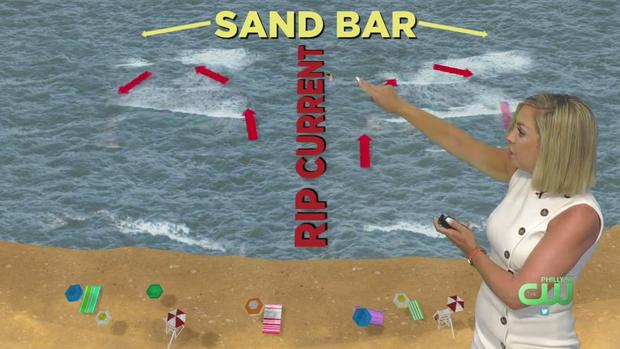Several Water Rescues At Jersey Shore Beaches Due To Dangerous Rip Currents Prompts Warning For Beachgoers Ahead Of Memorial Day Weekend
SEASIDE HEIGHTS, N.J. (CBS) -- A warning for beachgoers as we approach Memorial Day weekend. It is not safe to swim in the ocean at the Jersey Shore unless a lifeguard is present due to dangerous rip currents.
As people begin to turn to the ocean as a place to cool off, it is important to know the ocean is dangerous for even the most experienced swimmers.
There have already been a number of water rescues down at the Jersey Shore due to swimmers getting stuck in dangerous rip currents.
On Sunday, Seaside Park Fire reported three water rescues due to dangerous rip currents.
"STAY OUT OF THE OCEAN," Seaside Park Fire tweeted. "DANGEROUS RIP CURRENTS! NO LIFEGUARDS ON DUTY! Within the last 90 minutes, there have been three water rescues on the beach in Seaside Heights."
All the victims were rescued & several were transported to the hospital.
Last week, Atlantic City police put out a warning after multiple water rescues -- including one where a Good Samaritan jumped in to help children who were stranded in crashing waves.
CBS3 Meteorologist Lauren Casey reports 60 people are killed by rip currents in the United States each year. Last year, five people lost their lives in the surf zone at the Jersey Shore and Delaware beaches.
Rip currents are narrow channels of water that flow away from the shore and back out to the ocean. Rip currents can reach speeds of over 5 mph, which is faster than an Olympic swimmer.
They often form at breaks in the sandbar, as the water takes the path of least resistance out to sea.
A rip current is usually difficult to spot, but some tell-tale signs include areas where the waves aren't breaking or there is seaweed or foam pooling just offshore.
If you get caught in a rip current it is important to know how to get out of it.
First, stay calm and do not panic -- and do not fight the rip current.
You should swim parallel to the shore until you are free of the grip and then proceed to swim back to shore.
If you cannot escape, float or tread water and wave/shout for help.
Casey says dangerous rip currents are one of the reasons it is important to always swim in front of the lifeguards.




